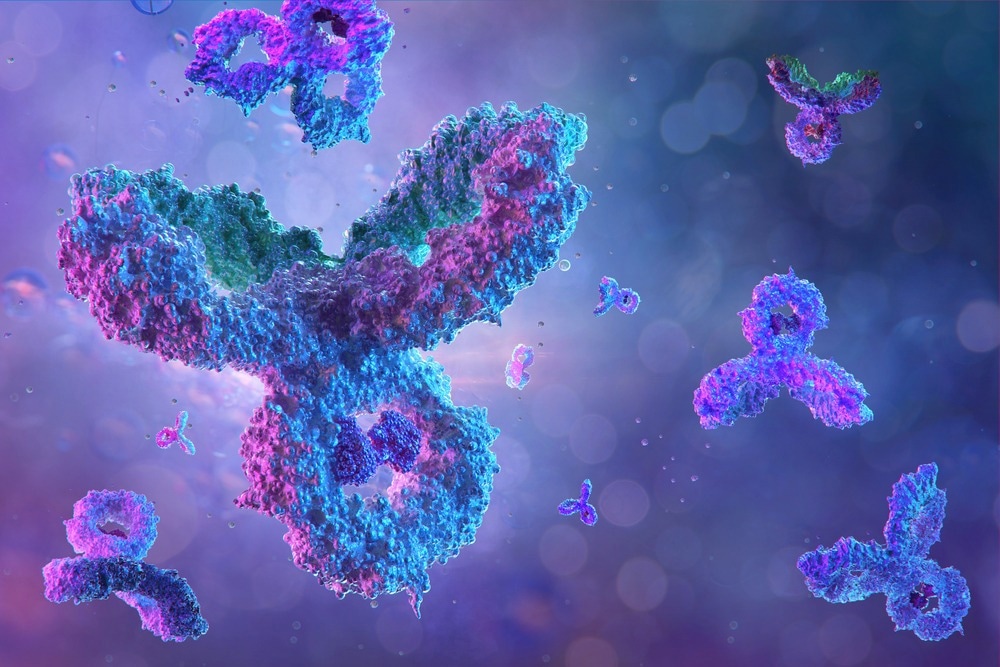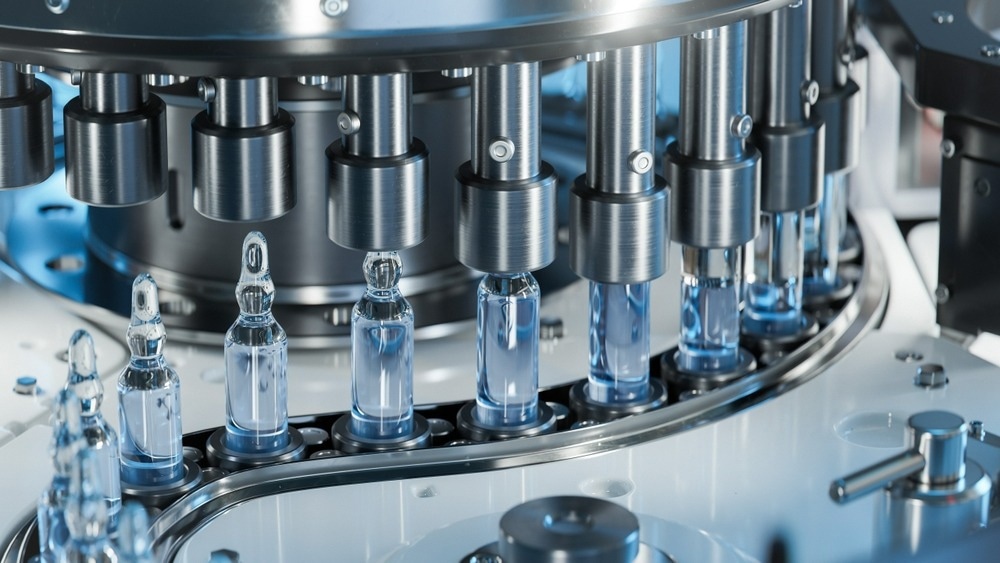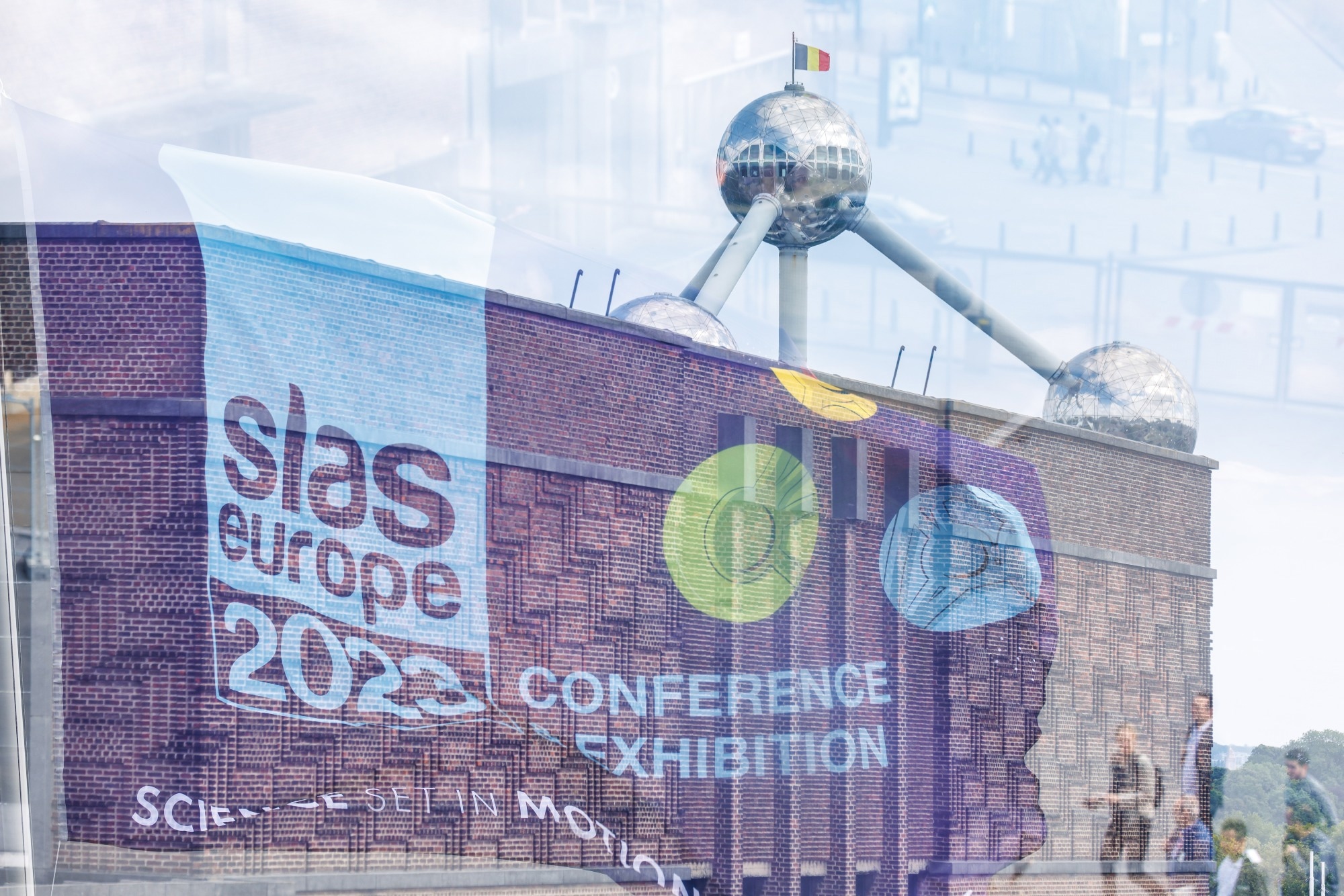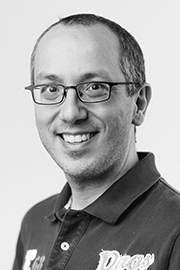In this interview conducted at SLAS EU 2023 in Brussels, Belgium, we spoke to Silvio Di Castro, Senior Technology Scientist at AstraZeneca, about his research, as well as the role of compound management in pharmaceutical research.
Please could you introduce yourself and tell us what inspired your career within science?
My name is Silvio Di Castro, and I work as a Principal Scientist at AstraZeneca in Sweden. I first became interested in science at a young age; I have always been curious about how things work.
As a result, I decided to become a chemical engineer and then joined compound management at AstraZeneca, and I have been doing that ever since.
Can you tell us about your day-to-day responsibilities as a principal scientist?
I research both the technologies of today and tomorrow to help solve current problems and bring about new opportunities. My role covers the compound management environment and the neighboring environments, such as discovering biology.
I also work in a lab once a week, which allows me to assess the effectiveness of our workflows, identify possible opportunities to improve, and keep in touch with the team.
What is the focus of your current research?
My research has focused on biologics over the last few years. For us, biologics means antibodies, oligonucleotides, proteins, and peptides. My interest in biologics primarily stems from a company management perspective, such as how to handle these molecules, register them, and treat them.

Image Credit: Corona Borealis Studio/Shutterstock.com
These molecules present different challenges. They are different from the small molecules we have used for many years, so they must be treated differently.
Numerous technological advancements over the last decade have aimed to speed up the drug discovery process. What role does technology play in pharmaceutical research?
Technology plays a huge role in pharmaceutical research, not just in enabling more experiments but in enabling the right type of experiments. Doing the right experiments allows us to make better and quicker decisions. This shortens the project timeline and delivers our medicines to the patients faster.
At SLAS EU 2023, you gave a talk on ‘Compound Management: Delivering ‘Solutions’’. Can you tell us more about what you discussed in this talk?
My talk at SLAS EU focused on compound management’s contribution to the scientific environment and how automation and the processes involved bring value to scientific research.
Compound management does not merely move samples from A to B. We help our scientists to make better, quicker decisions. My talk helped communicate this to a broader audience to improve their expectations and knowledge regarding compound management.
What role do compound management groups have in early pharmaceutical research?
Compound management groups are the custodians of a pharmaceutical company’s research compound collection. We receive the compounds from chemistry and register them, giving them an identity.
We store them according to several studies that we have conducted in the past, then distribute them to researchers globally to perform their assays and experiments.

Image Credit: IM Imagery/Shutterstock.com
Compound management groups generally employ highly advanced techniques, automation, and workflows. Our environment is generally highly streamlined and productive. We bring to pharmaceutical research productivity and the ability to produce and distribute materials for research at a fast pace but also with high quality.
Pharmaceutical research has particularly gained increased attention in the wake of the COVID-19 pandemic, with many people wanting to learn more. How do you feel the COVID-19 pandemic has impacted your work at AstraZeneca and the wider pharma industry?
During the recent pandemic, we suffered the same issues as the rest of the industry. The majority of labware or equipment was difficult or impossible to acquire. This resulted in a creativity boost, as we learned to do things differently and make do with what we had.
Some of these changes have stayed with us, such as remote working, better and simpler teleconferencing methods, and the ability to shrink the world through webcams.
With new advancements being made at such an incredible pace in pharma, what do you personally enjoy most about working in this fast-paced sector? Are there any particular discoveries or developments you are excited to see in the coming years?
The fast-paced evolution of technology is bringing about a number of new challenges that are fun to resolve as an engineer, as well as more variety.
Compound Management and its Crucial Role in Early Pharmaceutical Research
I am excited about the prospects of utilizing AI and machine learning in our environments and how these tools can help to make the right decisions and see patterns that humans would struggle to identify. AI will likely help us find solutions at a faster pace.
SLAS EU is an international exhibition and conference bringing together both academics and industry professionals in the life sciences community. How important are these in-person conferences in bringing about new ideas and partnerships?
In-person events are extremely important. The ability to network with people is unparalleled when it comes to exchanging ideas with others. No number of teleconferences can bring the same value to a conversation that an in-person meeting can.

Image Credit: SLAS EU
With Europe being home to an incredible life science community, why is it so important to highlight Europe as a major player in big pharma?
Europe has a rich history of renowned universities and profound pharmaceutical companies, and many advancements are taking place in a very diverse environment. The value of research coming from Europe is first class.
What is next for you in your work? Are you involved in any exciting upcoming projects?
I am involved in projects that are looking at the process of automating experiments, particularly the ability to run a compound management lab autonomously using autonomous robots.
About Silvio Di Castro
A chemical engineer by training, I started my Compound Management journey at AstraZeneca in 2002, first in the UK, then Sweden. During this time, I have developed considerable expertise in laboratory automation for the storage, handling, and supply of biopharmaceutical compounds to local and global drug discovery research projects. 
Working across functions, countries and companies, I have developed a strong network of connections, which allowed me to implement impactful solutions for automated sample handling in several areas of the business.
Recent career highlights include leading the implementation of the world's first fully acoustic Sample Management system, developed as collaborative partnership between AstraZeneca, Beckman, and Azenta, as well as establishing aqueous sample workflows within Compound Management to handle therapeutic modalities beyond small molecules. My current focus is on exploring the endless possibilities of autonomous mobile robotics and shaping the labs of the future at AstraZeneca.
Prior to joining AstraZeneca, I gained an MSc in Chemical Engineering at the "Federico II" University, Naples (Italy), under the supervision of Prof. Guido Greco.
Any spare time is happily invested in producing artwork (digital and traditional), and genealogical research, all while listening to a variety of metal music genres.